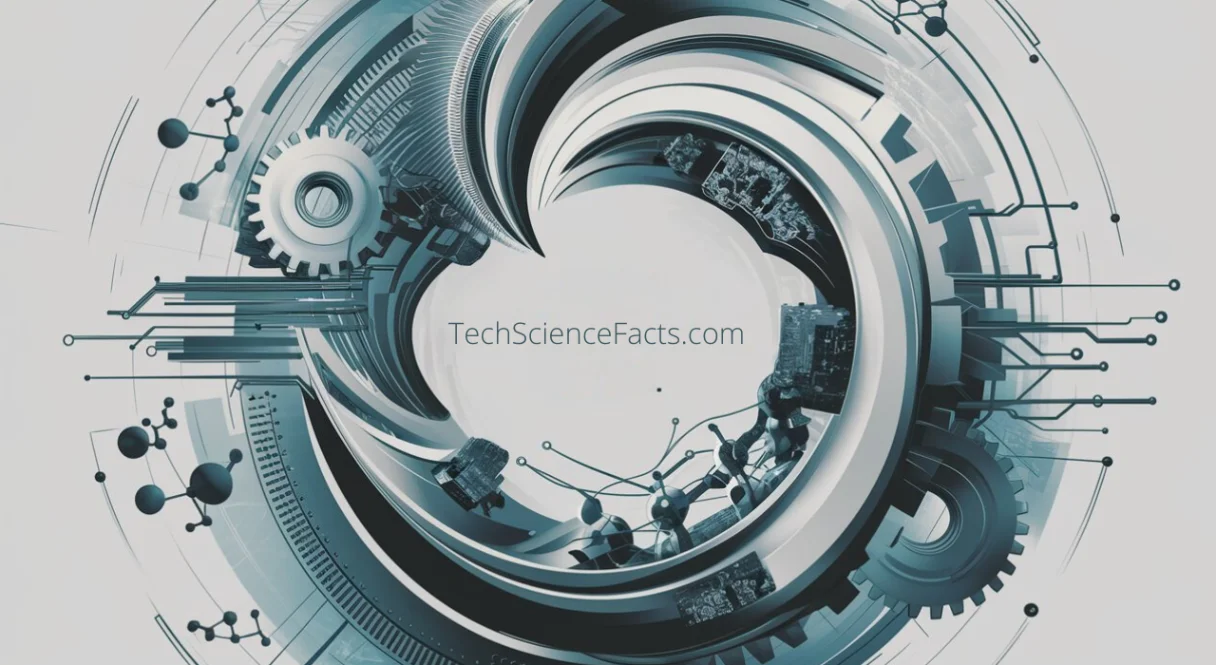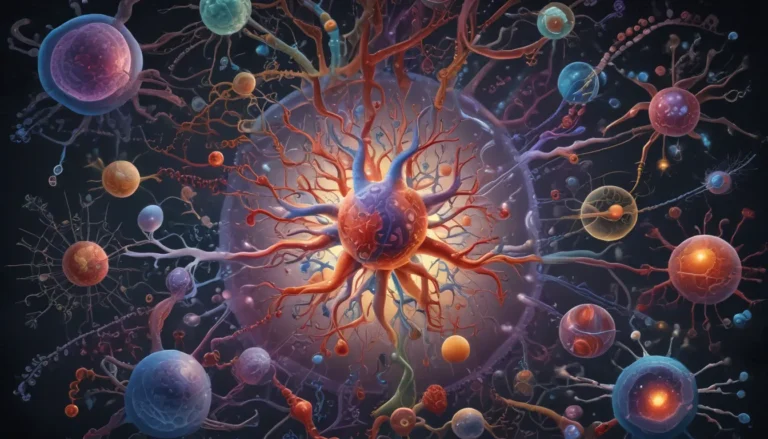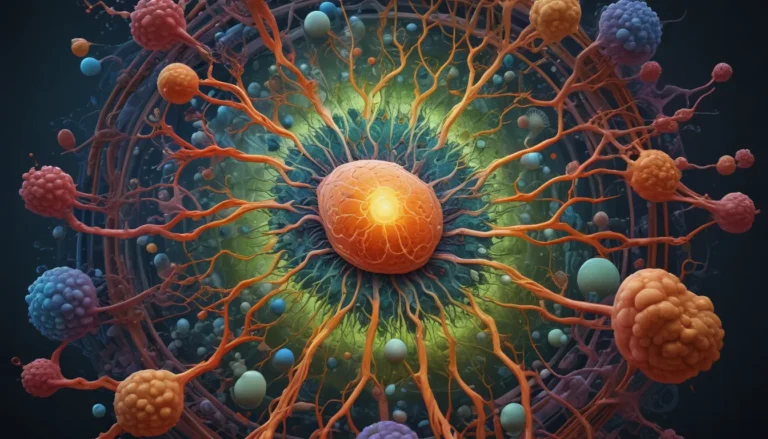A Note About Images: The images used in our articles are for illustration purposes only and may not exactly match the content. They are meant to engage readers, but the text should be relied upon for accurate information.
Cellular reprogramming stands at the forefront of a revolutionary field in biology, promising to redefine our understanding of cell development and regeneration. This transformative process allows cells to alter their fate, paving the way for groundbreaking advancements in regenerative medicine, disease modeling, and drug discovery. Join us on an enlightening exploration as we uncover 11 mind-blowing facts about cellular reprogramming that showcase the extraordinary capabilities of our cells and the promising future it holds for healthcare.
The Power of Cellular Reprogramming
- Cellular reprogramming can transform one type of cell into another: This fascinating technique enables scientists to convert cells from one type to another, unlocking endless opportunities for regenerative medicine and disease treatment.
- Discovered by Shinya Yamanaka and John Gurdon: In 2012, Yamanaka and Gurdon were awarded the Nobel Prize in Physiology or Medicine for their pioneering work on cellular reprogramming, revolutionizing our understanding of cell development and differentiation.
- Induced pluripotent stem cells (iPSCs) are derived through reprogramming: One of the most remarkable applications of cellular reprogramming is the creation of iPSCs, capable of differentiating into any cell type in the human body, offering immense value in regenerative medicine.
Promising Applications of Cellular Reprogramming
- Potential to treat a wide range of diseases: Cellular reprogramming holds great promise in treating diseases like Parkinson’s, diabetes, and heart failure by replacing damaged cells with healthy ones, providing new hope for patients.
- Reprogramming through specific transcription factors: Introducing specific combinations of transcription factors into cells initiates the reprogramming process, guiding cells towards a desired fate.
- Direct reprogramming for targeted cell conversion: Direct reprogramming allows the conversion of one cell type directly into another, offering a potential treatment for neurological disorders by transforming skin cells into neurons.
The Intricacies of Cellular Reprogramming
- Complex process involving epigenetic changes: Cellular reprogramming requires alterations in the epigenetic landscape of cells, such as DNA methylation and histone modifications, crucial for resetting the cell’s identity.
- Reversing cellular aging: Studies have shown that cellular reprogramming can reverse aspects of cellular aging, rejuvenating tissues and organs and paving the way for anti-aging therapies.
- Implications for personalized medicine: Cellular reprogramming could enable the creation of patient-specific cells and tissues for transplantation, minimizing rejection risks and revolutionizing organ transplantation.
The Evolving Field of Cellular Reprogramming
- Rapid evolution and ongoing research: Scientists are continuously discovering new techniques and refining existing methods in cellular reprogramming, offering great promise for the future of medicine and regenerative therapies.
- Ethical considerations: As with any powerful technology, ethical questions around consent, patient privacy, and responsible use of reprogrammed cells need to be carefully addressed as the field progresses.
In conclusion, the captivating world of cellular reprogramming unveils the immense potential of this scientific breakthrough, offering a glimpse into a future where the transformative power of cells drives advancements in regenerative medicine and personalized therapies. As research in this dynamic field continues to expand, new doors of possibilities are poised to open, bringing us closer to harnessing the capabilities of cellular reprogramming for the betterment of humanity.
Unlocking the Future with Cellular Reprogramming
Cellular reprogramming represents a transformative frontier in medical science, reshaping our understanding of cellular development and offering new avenues for therapeutic applications. By harnessing induced pluripotent stem cells and direct reprogramming techniques, researchers have unlocked the potential to manipulate and transform cells, paving the way for regenerative medicine, disease modeling, and drug discovery.
The ability to study diseases in a dish, personalize medicine, and generate replacement tissues and organs marks a significant leap forward in healthcare possibilities. Moreover, the prospect of reversing cellular aging opens doors to anti-aging interventions and extended lifespan, highlighting the profound impact of cellular reprogramming on the future of medicine.
As the realm of cellular reprogramming continues to evolve, the possibilities for groundbreaking discoveries and applications are limitless, propelling the field of biology and medical research into an era of unprecedented advancements and transformative outcomes.
FAQ: Exploring the Fascinating World of Cellular Reprogramming
Q: What is cellular reprogramming?
A: Cellular reprogramming refers to the transformation of a cell’s identity and characteristics, typically from a differentiated state to a pluripotent or versatile state.
Q: How is cellular reprogramming achieved?
A: Cellular reprogramming can be accomplished through various methods like transcription factors, small molecules, and genetic manipulation, with induced pluripotent stem cells (iPSCs) and direct reprogramming being common techniques.
Q: What are the potential applications of cellular reprogramming?
A: Cellular reprogramming holds promise in regenerative medicine, disease modeling, drug discovery, and anti-aging interventions. It could generate replacement tissues and organs, personalize medicine, and deepen our understanding of disease mechanisms.
Q: Are there any ethical considerations with cellular reprogramming?
A: Ethical considerations in cellular reprogramming include the use of human embryos and the risk of potential misuse. However, stringent guidelines and regulations are in place to ensure ethical and responsible scientific practices.
Q: How does cellular reprogramming impact the field of biology?
A: Cellular reprogramming has revolutionized our comprehension of cellular development and differentiation, shedding light on disease mechanisms and reshaping medical treatment approaches.
Delve into the captivating realm of cellular processes and discover the extraordinary potential of cellular reprogramming to transform the landscape of modern medicine and unlock new horizons of healing and regeneration!






